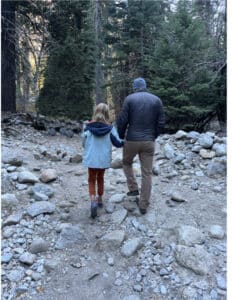Despite my best efforts, I’ve managed to adult my way into new responsibilities at work (read: extra meetings). With an opportunity to originate and expand a position at my place of business, I’ve found myself reflecting on leadership and organizational structure.
Good leadership was modeled for me early and well in my YW years. I always held a spot in a YW presidency, attended those regular BYC meetings with agenda in hand, and saw how activities were coordinated from beginning to end. On top of getting an early feel for managing logistics, I felt empowered to lead.
The responsibilities of the job were ones I took seriously. In YW, I learned early how to pay attention to those around me, to offer support, to help, to listen. The value of stewardship – the care and love inherent in that role – was imprinted on my heart in those small opportunities to check in and see if someone was all right or to help where I could.
A leader leads by not just caring about the welfare of the people in their organization, but centering that welfare.
I’m grateful for those early lessons.
My expanded role at work has placed me in new rooms and at new tables. While I am very much the most junior person, hierarchically speaking, I still get to be in “the room where it happens.” I work with brilliant people who go out of their way to make sure I speak up, who mentor me, who build me up.
To say that I am anxious about these new responsibilities isn’t quite enough. I am terrified. But my coworkers’ consistent integrity and commitment to equity have unknotted something in my soul.
That a leader leads through gentle and kind attention to the welfare of their people is something I had somehow forgotten in my adult years.
That a leader leads by stepping back and making space for others is something I have long believed, but it’s something else to see it in action.
Being in spaces at work where I can observe the people above me valiantly defending our agency, our right to do our jobs well without excessive oversight or meddling, carving out the space to say no, to protect our dignity and peace is unfamiliar. Yet another unknotting in me, this time I realized I had forgotten what it felt like to not be fully at the mercy of those hierarchically above me.
I feel sorrow that the way I was shaped and supported in my youth callings dissipated upon reaching adulthood. As an adult, I have struggled to figure out how I fit in the church organization. It feels like one misstep after another. I’m both too little and too much for any one calling, but somehow always a disappointment.
I feel sorrow that the inspiring people I work with, who act with integrity, speak inclusively, strive for equity, had to heal what my experience with poor leadership in the church had broken in me.
I am still grateful for those early opportunities in my youth. The worth of souls was written deep in my heart in formative years, informing my life’s work. This is the good I take with me.
But as an adult, I cannot ignore the lack of leadership with integrity, with an emphasis on equity and inclusion, at church. I know how deeply I have been affected by people with more power and authority than wisdom in how to wield it, and I know I’m not the only one who has been affected so.
It’s too bad all of our general authorities, and bishoprics, and stake presidencies, and high councils, and area authorities missed out on the YW experiences that shaped my early understanding of leadership. There might have been some crucial lessons on leadership to be found there.
Photo by LinkedIn Sales Solutions on Unsplash







2 Responses
For me, working as a young married woman (before I had kids and stayed home) was a big part of my feminist awakening. It wasn’t even a good work environment – but I was really successful there so people (men and women both) listened to me and asked for my advice.
At the same time I was in a young women’s presidency and I saw how completely ignored I was at church because I didn’t have the priesthood. It was such a glaring difference between the two places and how I was treated and how much respect I was given. Leadership thinks women will just stay forever and put up with whatever happens because we’re told it’s from God, but when we start to doubt that fact it all falls apart fast.
I’m not sure that I had a “feminist awakening” per se. My mom was a feminist before she joined the church and before she had any of us kids. I feel on some levels I was a feminist before I could even walk.
But part of my midlife transition/unraveling has been reclaiming the leadership vision, ability to make good decisions for the family, and some executive functioning skills and confidence that I had as a teenager. I am usually on the quest to be a better leader – and lately, trying to become a “trauma-informed” decision-maker.
I ended up at the intersection of education, neurodiversity, trauma, mental health, ethics, administration, spirituality, and logistics.
I got to the point where “I couldn’t put up with whatever happens” because it wasn’t in me to have that capacity and/or the personal cost it had for me was just very, very high – and included a degree of personal integrity.